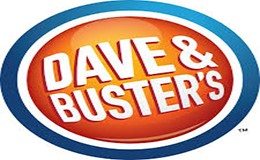Classical Education
I’ll admit my ignorance. When charged with writing about “classical education” as an alternative to traditional public schooling, I drew a blank. My first guess was that a classical education might have something to do with studying the classics, or maybe an emphasis on classical music?
My first guess was closest, but still way off. A classical education is heavily oriented towards the liberal arts, and its students do study important works of literature, but it is much more than that. A classical education seeks to teach students in a very intentional way, based on their age and progression of understanding. In addition, it often requires students to study Greek or Latin, may include musical study, and places a heavy emphasis on the development of values and character. The model ultimately seeks to develop students into both scholars and active citizens.
Classical curriculum is being taught in many homeschools, small learning pods, private schools and religious schools. Some public charter schools have also adopted aspects of classical learning. Typically found in urban areas, the goal of many classical charter schools is to give students from disadvantaged groups a stronger Western educational foundation and encourage higher college attendance rates.
The Trivium
Today’s classical schools typically still assign conventional grade levels like their public school counterparts, but they follow a very different schedule of learning progression called the Trivium. The Trivium is a language-intensive, three-part approach to learning, comprised of grammar, logic and rhetoric.
Grammar, the first stage, does not refer to the rules of language, but rather to the earliest stages of a student’s education– what would typically be known as kindergarten through 4th or 5th grade. The goal of the grammar stage is to build a solid foundation of knowledge upon which to build subsequent stages. Young children are wired to delight in finding patterns and acquiring information. The grammar stage seeks to capitalize on that natural inclination by providing opportunities for learning through reciting and repeating information. Students focus more on memorizing facts rather than developing original ideas. They are expected to understand phonics and sentence structure and to develop their lexicon. They memorize basic facts of history such as information about wars, leaders and various movements. In math, they are expected to be proficient in their facts and to know the steps for solving a variety of math problems.
Logic, the second stage, teaches students how to analyze information and begin to craft arguments to express original ideas. This stage typically corresponds to 6th through 8th grade. During this stage, students learn how to evaluate history and literature, to explain various facts; in other words, the “why” behind what they learned during the grammar stage. For example, they might consider why a certain war started, rather than just memorizing the facts surrounding the war. They begin to read more challenging literature, studying works like Shakespeare and classic novels, such as Moby Dick.
In the rhetoric stage, corresponding with 9th through 12th grade, students learn how to apply the reasoning tools they learned in the logic stage to the facts they learned in the grammar stage and begin to construct arguments, both oral and written. Teachers of this stage help students sharpen their critical thinking skills with the goal of challenging ideas and information through written expression, projects, presentations and debate. The aim is to teach students the practice of seeking the truth, during their time as students, but also as they move into their adult lives.
Character Development
Classical education seeks to grow students academically but also in character and values, such as accountability and self-discipline. As a result, most models include some form of ethics or character-building study. In faith-based schools, religion classes typically serve as the basis for character and value development. In a non-religious school setting, character development is usually woven into the curriculum and can also be addressed through civics classes.
Switching to Classical Education
As a former public school education teacher, I was initially resistant to the idea of classical education as opposed to current educational practices. However, in learning more about the model, I can see a variety of positive aspects to the approach. But, what about families whose children have spent years in the public school system? Would it be too disruptive to switch their children to a classical education model? I learned that, generally, it can be somewhat easier (although challenging for the parent) to transition to a classical homeschool practice rather than a formal school setting. In the homeschool setting you can work to meet your child where he or she is and can pace the progression of the curriculum according to individual needs. If you want to switch your child to a classical school setting, it’s important to meet with the school to determine the best entry point. Some schools prefer that a student enters at certain grades, while others will recommend a start before the logic phase of the Trivium.
You may also have to do some study outside of school to bring your child up-to-speed. In fact, if the classical school you are interested in offers a summer school program, it can be a great way to have your child experience a less formal beginning to the model. Ultimately, all proponents of classical education say that, in the end, it’s really never too late to start.
Alison Bogle is a writer living in Austin with her husband and three children. A former fourth grade teacher, she now enjoys writing about children and education. You can also catch her talking about articles from Austin Family magazine each Thursday morning on FOX 7 Austin.














